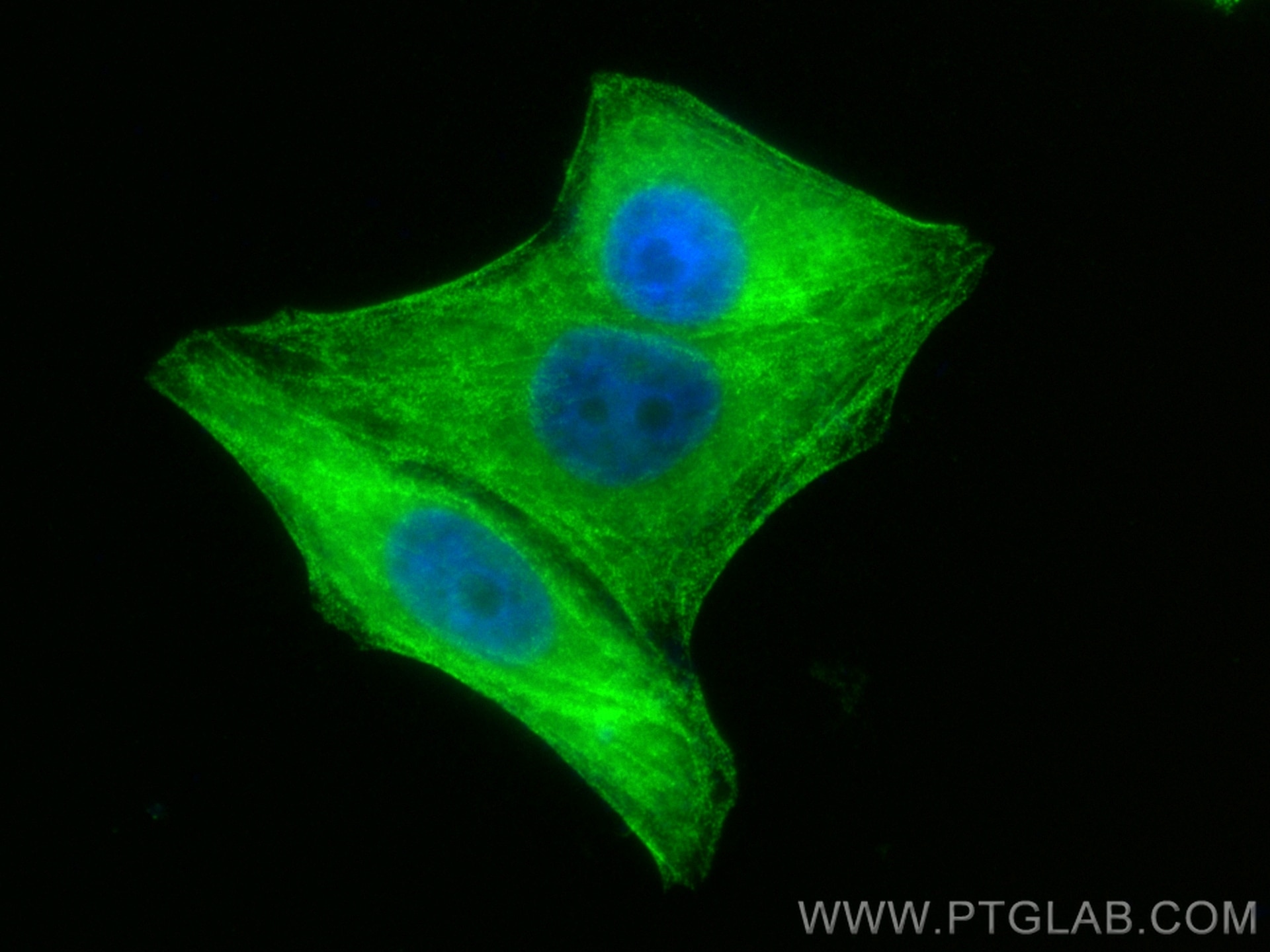Validation Data Gallery
Filter:
Tested Applications
| Positive IF/ICC detected in | HepG2 cells |
Recommended dilution
| Application | Dilution |
|---|---|
| Immunofluorescence (IF)/ICC | IF/ICC : 1:50-1:500 |
| It is recommended that this reagent should be titrated in each testing system to obtain optimal results. | |
| Sample-dependent, Check data in validation data gallery. | |
Product Information
CL488-11128 targets MYH9 in IF/ICC applications and shows reactivity with human, mouse, rat samples.
| Tested Reactivity | human, mouse, rat |
| Host / Isotype | Rabbit / IgG |
| Class | Polyclonal |
| Type | Antibody |
| Immunogen | MYH9 fusion protein Ag1612 相同性解析による交差性が予測される生物種 |
| Full Name | myosin, heavy chain 9, non-muscle |
| Calculated molecular weight | 227 kDa |
| Observed molecular weight | 224 kDa |
| GenBank accession number | BC011915 |
| Gene Symbol | MYH9 |
| Gene ID (NCBI) | 4627 |
| RRID | AB_3672482 |
| Conjugate | CoraLite® Plus 488 Fluorescent Dye |
| Excitation/Emission maxima wavelengths | 493 nm / 522 nm |
| Form | Liquid |
| Purification Method | Antigen affinity purification |
| UNIPROT ID | P35579 |
| Storage Buffer | PBS with 50% glycerol, 0.05% Proclin300, 0.5% BSA , pH 7.3 |
| Storage Conditions | Store at -20°C. Avoid exposure to light. Stable for one year after shipment. Aliquoting is unnecessary for -20oC storage. |
Background Information
MYH9 (Myosin-9) appears to play a role in cytokinesis, cell shape, and specialized functions such as secretion and capping. MYH9 is a hexameric protein that consists of two heavy chains (~200 kDa) and two pairs of non-identical light chains (15-22 kDa), a pair of essential or alkali light chains, and a pair of regulatory light chains (PMID: 12800156).
Protocols
| Product Specific Protocols | |
|---|---|
| IF protocol for CL Plus 488 MYH9 antibody CL488-11128 | Download protocol |
| Standard Protocols | |
|---|---|
| Click here to view our Standard Protocols |
